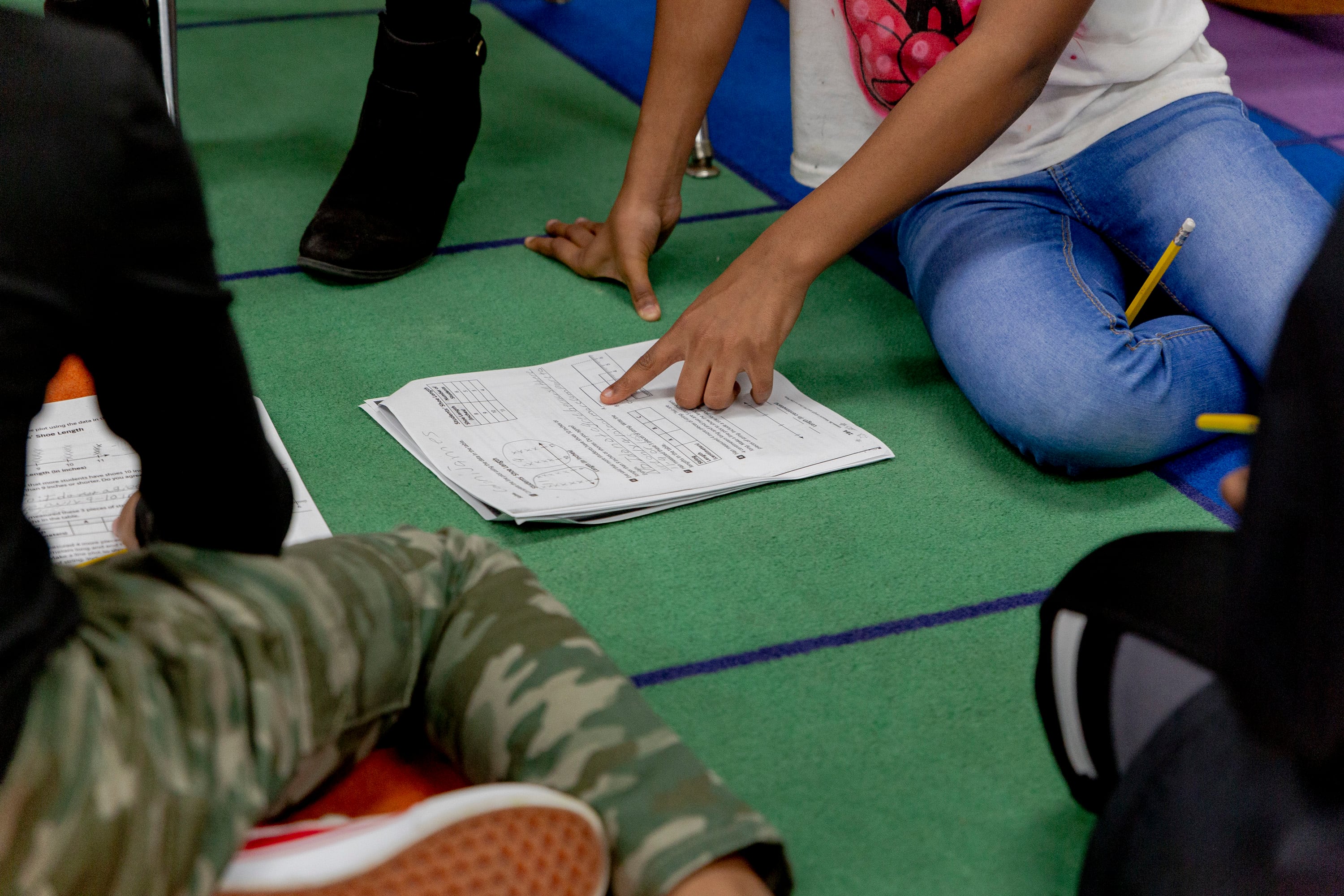Sign up for Chalkbeat Indiana’s free daily newsletter to keep up with Indianapolis Public Schools, Marion County’s township districts, and statewide education news.
Tutoring programs last year appeared to spur academic gains for Indianapolis Public Schools, but the district is scaling them down as funding ends.
Like districts across the country, IPS leaned on in-person and virtual tutoring to drive academic recovery after the pandemic, fueled in part by the availability of federal relief dollars earmarked for accelerating learning. The district last year offered free, after-school virtual tutoring for all students who wanted it, as well virtual tutoring at 24 schools during scheduled academic intervention periods.
The results have been promising. Students who attended tutoring had higher rates of growth on NWEA testing than those who didn’t, according to data presented to the IPS Board of Commissioners Thursday from Tutored by Teachers, one of the district’s tutoring partners. The gains were especially pronounced for students who attended after-school tutoring more frequently, and who receive subsidized meals.
But the deadline to spend or commit those federal funds is the end of September. That expiration date, along with a new state law requiring more third graders to be held back if they can’t demonstrate key reading skills, has led the district to shift its focus to tutoring just some second and third graders next year.
“We want to make sure we’re allocating existing resources in the spaces that we think are going to be the most impactful … and where we know there’s a really high need, given the importance of being able to read by third grade,” said John Isaacson, IPS strategy analyst.
In the last two school years, the district worked with Tutored by Teachers to provide both in-school and after-school virtual tutoring. The program reached a peak of 9,500 students served during the 2023-24 school year, according to the Tutored by Teachers presentation. Around 4,400 of them received tutoring during the school day at 24 schools, and 2,700 received tutoring after school.
Schools also used the program to fill vacant teaching roles, and this approach reached another 2,300 students.
In-school tutoring was linked to a 9-point gain in NWEA growth percentiles in English, and a 10-point gain in math. The after-school tutoring program was linked to various levels of growth depending on how many hours students attended.
Around half of all students completed at least 10 hours of tutoring in a semester. One hundred and seventy-five students attended 20 or more hours of after-school tutoring, which was linked to the most significant academic gains.
Beginning next year, the Tutored by Teachers program will focus on literacy tutoring for second and third graders identified as needing academic help by their NWEA or state testing scores. The program will take place during 30-minute blocks in class four times per week from mid-August to March. (The IPS school year begins Aug. 1.)
Isaacson said this program will reach around 1,200 students next year. Deputy Superintendent Andrew Strope said the district will also advocate for future state and philanthropic funding for more tutoring programs.
IPS has spent around $14 million on tutoring efforts — one of its largest initiatives using federal relief funding. Around $5 million remains in that budget according to the district’s online tracker.
The district spent roughly $4.3 million on Tutored by Teachers from August 2022 to through March 2023.
“This was the single best example of ESSER spend in the country,” said Shaan Akbar, co-founder of Tutored by Teachers.
In addition to the two Tutored by Teachers programs, the district worked with a handful of other organizations to offer in-person tutoring. Some of these are also scaling down or discontinuing next year:
- Brightlane Learning offers tutoring for students at certain schools who are experiencing homelessness. Isaacson said this program will continue next year.
- Listen to Our Future offered daily small-group in-person tutoring for Lowell 51, Penn 49, and Wallace 107. Isaacson said the district is looking for ways to work with the organization in the future. Listen to Our Future CEO Lillian Barkes said it plans to work with one school in IPS.
- IUPUI Young Scholars offered in-person tutor mentors support literacy twice per week for students at Potter 74 and Frost 106. This was a two-year pilot program which began in 2022; Isaacson indicated it would not continue.
Families interested in tutoring have options outside of IPS. Indiana offers tutoring grants of up to $1,000 for low-income students who scored below proficiency on state tests. Indianapolis city government also offers a literacy tutoring program.
Aleksandra Appleton covers Indiana education policy and writes about K-12 schools across the state. Contact her at aappleton@chalkbeat.org.





